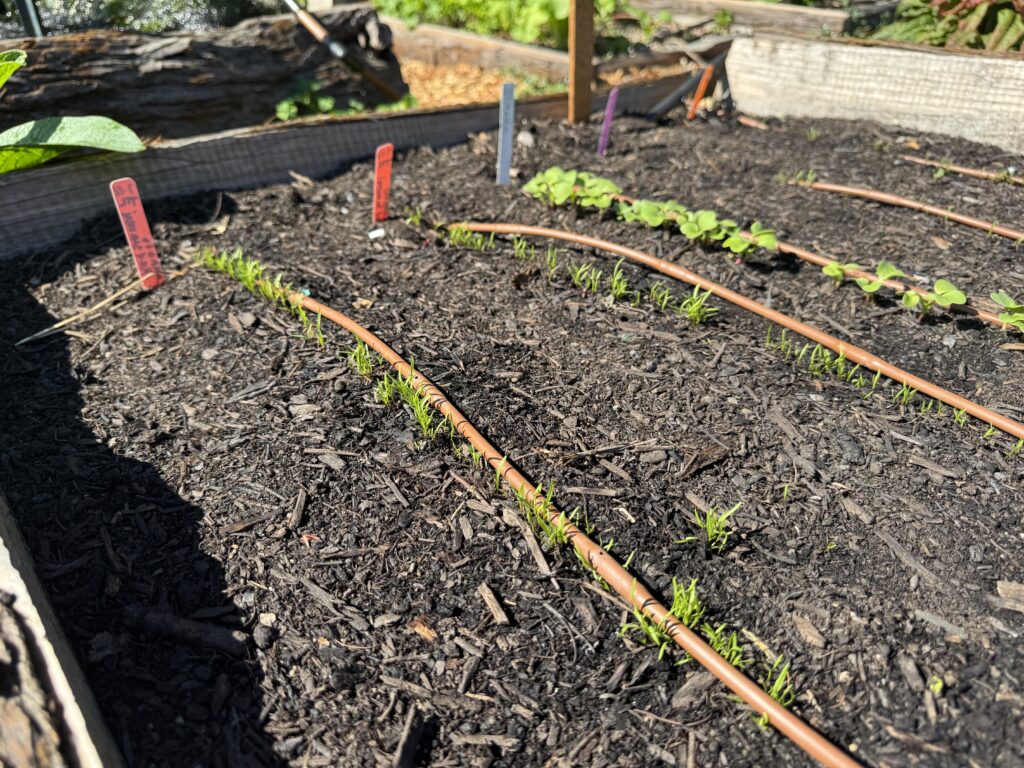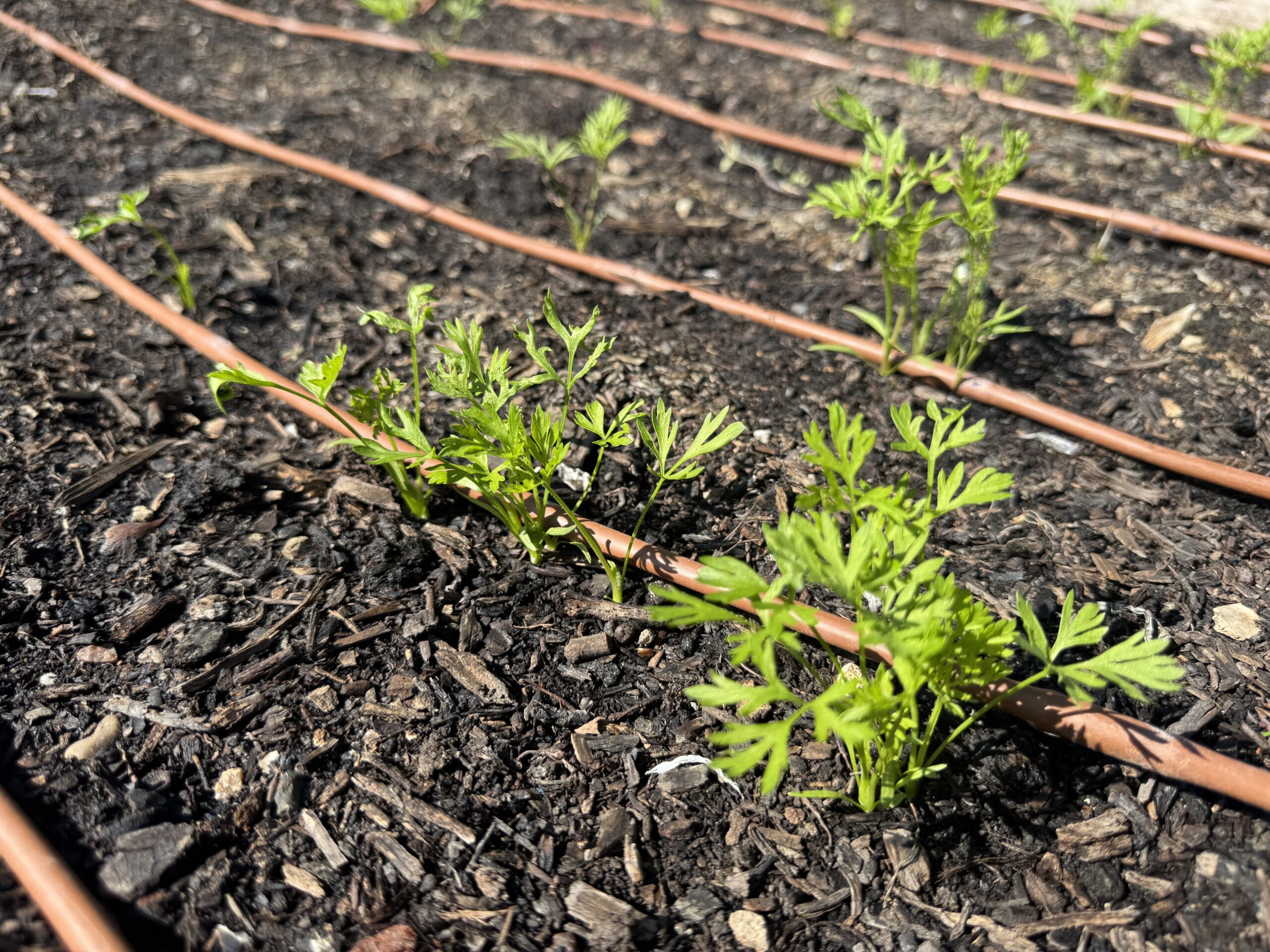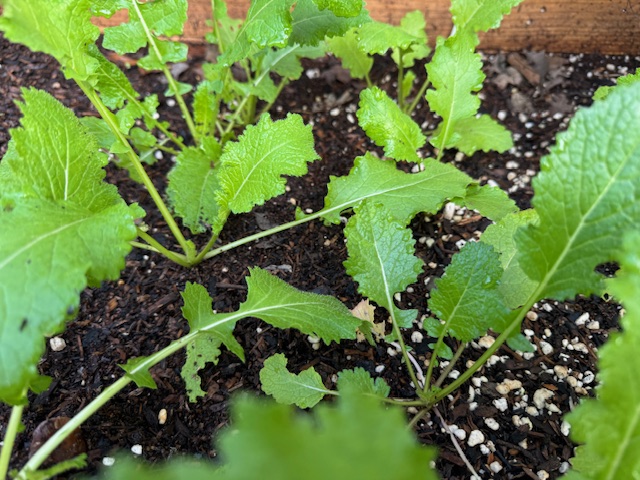How to Water Carrots the Right Way
Watering carrots might seem simple, but doing it right can make the difference between short, stunted roots and long, sweet, crunchy harvests. Carrots are shallow-rooted while young and deep-rooted as they grow, which means their water needs change over time.
In this guide, I’ll walk you through how often to water, how much water carrots need, and how to adjust watering as carrots mature—plus tips to avoid common watering mistakes.
💧 Why Carrots Need Consistent Moisture
Carrots are about 90% water, and consistent soil moisture is critical throughout their growing cycle. Uneven watering can cause:
- Poor seed germination
- Split or forked roots
- Woody texture or bitterness
- Deformed or stunted growth
The key to watering carrots is to keep the soil evenly moist, not soggy, from seed to harvest.
🌱 Watering Carrots at Different Growth Stages
1. Germination Stage (0–3 weeks after planting)
Carrot seeds are slow to germinate—often taking 7 to 21 days—and they must not dry out during this time.
How to Water:
- Lightly water once or twice a day to keep the top inch of soil moist.
- Use a fine spray, watering can, or misting hose to avoid displacing seeds.
- Consider covering the seedbed with a board or shade cloth to retain moisture (see our full post on Using Boards for Germination).
2. Early Seedling Stage (3–5 weeks after planting)
As carrots begin to sprout, they develop a shallow root system that still needs regular surface moisture.
How to Water:
- Water lightly every 1–2 days, depending on weather.
- Keep the top 2 inches of soil moist.
- Reduce frequency slightly as roots begin to grow deeper.
3. Root Development Stage (5+ weeks)
This is when the carrot roots begin to bulk up underground.
How to Water:
- Deep water once or twice per week, depending on rainfall and soil type.
- Ensure the soil is moistened 6–8 inches deep.
- Use a moisture meter or finger test to check soil below the surface.
🛠️ Tips for Efficient Carrot Watering
✔ Use Mulch
- Add a thin layer of straw, shredded leaves, or fine compost once seedlings are 2 inches tall.
- Mulch retains soil moisture and reduces surface crusting.
✔ Water in the Morning
- Morning watering reduces evaporation and gives plants time to dry before night, preventing fungal diseases.
✔ Avoid Overwatering
- Soggy soil can lead to root rot or encourage pests like carrot root fly.
- If your soil stays wet for hours after watering, reduce frequency or improve drainage.
✔ Use Drip Irrigation or Soaker Hoses
- These provide slow, deep watering and keep the foliage dry.
- Helps reduce diseases like Alternaria leaf blight.

🚱 Common Carrot Watering Mistakes
| Mistake | Result |
|---|---|
| Infrequent deep watering | Cracked or woody roots |
| Watering only the surface | Shallow root growth |
| Overwatering | Root rot, mildew, or disease |
| Letting seedlings dry out | Poor germination, patchy stands |
🧤 My Watering Routine (Zone 9b – Sonoma Valley)
In my raised beds, I sow carrots in early spring and late summer. I use:
- A fine spray during germination (sometimes twice daily in hot weather)
- Drip lines on timers to water deeply every 3–4 days as roots mature
- A layer of straw mulch once seedlings are established
This routine helps me grow straight, sweet carrots—even in warm, dry summers.
Final Thoughts
Getting watering right is one of the most important factors in growing beautiful, flavorful carrots. Remember:
- Keep the soil moist during germination
- Shift to deep watering as carrots mature
- Avoid extremes—too dry or too wet—and mulch to conserve moisture
Want more tips? Visit my Complete Guide to Growing Carrots for everything from planting to harvest.
Carrot Growing Hub
The Ultimate Guide to Growing Carrots from Seed to Harvest
1. Getting Started (Site & Timing)
- Where to Plant Carrots for the Best Root Development
- When to Plant Carrots: Timing for Every Season
- Carrots Seed Starting Tips
- How to Plant and Grow Carrots in Winter
- Grow Carrots Anytime of the Year in Five Steps
- How to Grow Carrots in Containers or Raised Beds
2. Planting & Varieties
- How to Plant and Space Carrots for Optimal Growth
- Carrot Varieties by Type: Best Picks for Home Gardeners
- Orange, Yellow, Red, Purple, and White Carrots: How to Choose the Right One
- Carrot Companion Plants: What Grows Well Together
3. Growing & Care
- Caring for Carrots Throughout the Growing Season
- How to Water Carrots the Right Way
- Carrot Crop Rotation: What to Plant Before and After
- Carrot and Parsnip Growing Problems: Troubleshooting
4. Harvest, Storage & Use




